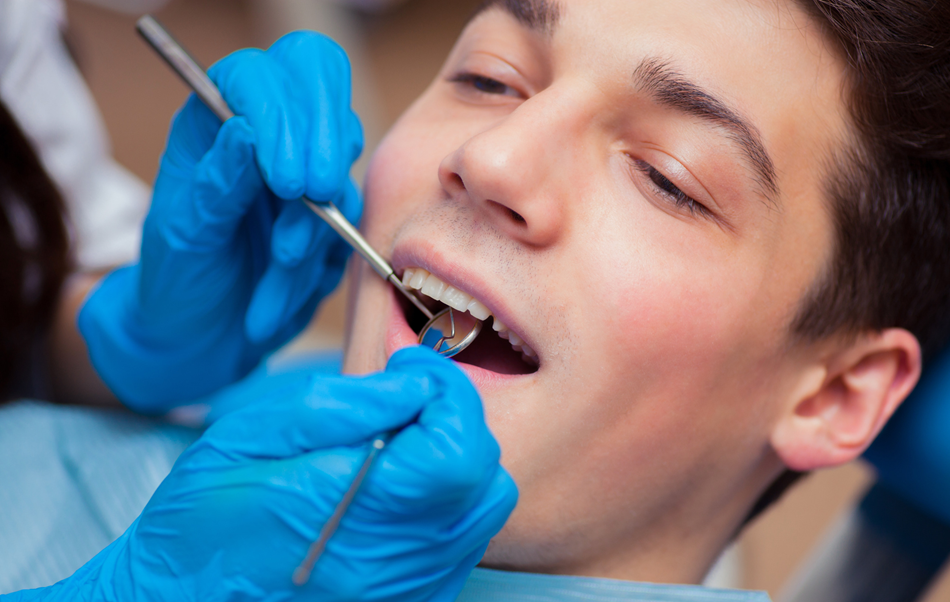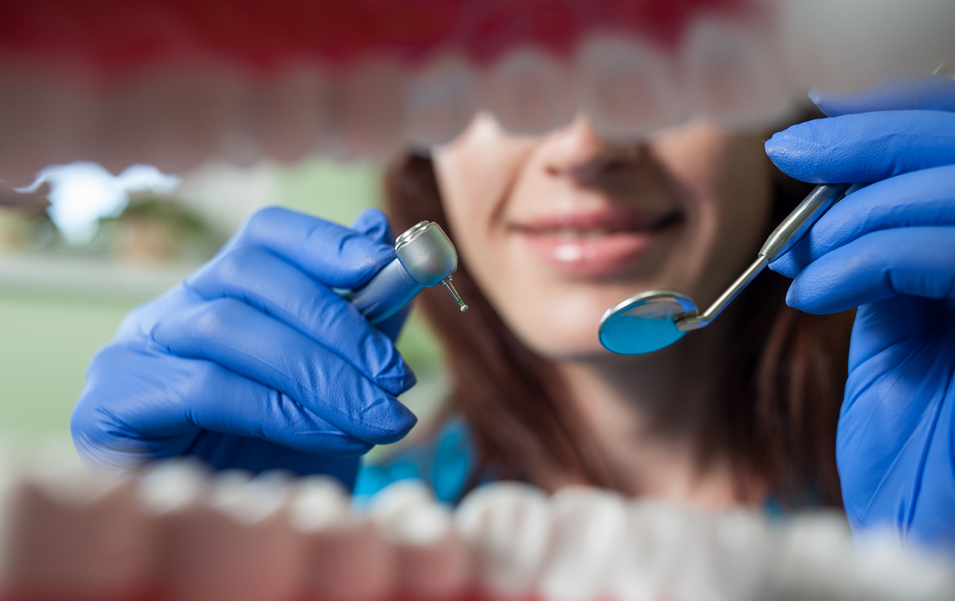Revolutionizing Tooth Replacement: A New Era in Denture Technology
 Admin - Prosthodontics
Admin - Prosthodontics
 Feb 18, 2024
Feb 18, 2024
A New Era in Denture Technology
Gone are the days of cumbersome, ill-fitting dentures that looked and felt artificial. Thanks to remarkable advancements in technology, tooth replacement is undergoing a transformative change. Modern denture technology is not only redefining aesthetics but also promising a significant leap in comfort, functionality, and durability for those who have lost teeth. This article delves into the innovative world of dentures, highlighting the technological marvels that make them the superior choice for oral rehabilitation. Whether you’re considering dentures for the first time or contemplating an upgrade, this piece will unravel why today’s state-of-the-art solutions are compelling.
A Break from Tradition
Traditionally, dentures were manufactured using acrylic and metal, offering a functional but visibly artificial option for those needing to replace teeth. Technological progress has ushered in a new era of denture care, where the focus is on crafting solutions that not only serve the purpose of teeth replacement but also ensure a natural fit and look. The transition from traditional to technologically advanced dentures is marked by several significant improvements that prioritize patient comfort and dental health.
Technological Advancements at a Glance
Utilization of materials closely resembling natural teeth
Customization through digital scanning and design for better fitting
Innovative attachment mechanisms improving stability during chewing and speaking
Introduction of computer-aided design (CAD) software and 3D printing for precise and consistent production
Comfort and Aesthetic Appeal
One of the most significant hurdles with traditional dentures was their inability to provide a truly comfortable experience. Wearers often complained of sore spots and difficulty chewing, in addition to the abnormal appearance of the prosthetics. With technological advancements, dentists can now offer custom-made dentures, providing a precise fit that feels natural in the mouth, reducing soreness and discomfort. Moreover, the use of advanced materials and digital customization yields dentures that are virtually indistinguishable from natural teeth, restoring both function and aesthetics.
Durability and Stability
Wear and tear are inevitable, even with dental prosthetics. However, modern dentures, constructed from sturdy, advanced materials, exhibit enhanced durability, ensuring they remain functional and aesthetically pleasing for years. Stability, an issue that plagued traditional dentures, is addressed through various innovative designs like implant-supported options that eliminate movement, improve chewing efficiency, and extend the life of the prosthetic.
Types of Advanced Dentures to Consider
Implant-Supported Dentures: Attached to dental implants, these dentures offer unparalleled stability and prevent jawbone loss often seen with removable options.
Flexible Partial Dentures: For those retaining some natural teeth, these lightweight, flexible options blend seamlessly with existing teeth.
Porcelain or Ceramic Dentures: Durable, natural-looking, these dentures promise an aesthetic, long-term solution to tooth loss.
The Way Forward
The evolution of dentures from simple, utilitarian devices to sophisticated, technologically advanced oral appliances signals a new beginning in tooth replacement. As this trend continues, patients can anticipate even more personalized, comfortable, and durable solutions, enhancing the quality of life for millions dealing with tooth loss. It’s a reminder of how technology and dental expertise go hand in hand to achieve truly remarkable outcomes in the field of dentistry. As a consumer, staying informed about these breakthroughs is the first step towards making informed decisions about oral health and restoration options.
In conclusion, the advancement of modern dentures is a testament to the ever-evolving nature of dental care. The emphasis on comfort, durability, and aesthetics underscores the commitment of the dental community to serve its patients best. For those considering tooth replacement, exploring these technologically advanced options is not just about restoring function; it’s embracing a life restored with confidence and ease.
3D Printing in Customized Dentures
In recent years, technological advancements have been at the forefront of innovations in dentistry. The field has witnessed a significant shift, particularly in the creation of customized dentures, due to the introduction of 3D printing. This modern technique has vastly improved the traditional, time-consuming process, offering a more efficient and personalized solution for individuals in need of tooth replacement. But what exactly is the impact and the role that 3D printing plays in the world of personalized dentures? Let’s dive into the details.
The integration of 3D printing technology in the realm of dentistry addresses a crucial need: the ability to recreate an individual’s unique dental structure with meticulous precision. This personalized approach ensures that each set of dentures is uniquely tailored, mitigating any discomfort or problems that often arise from poorly fitting traditional dentures. Unlike the former, 3D printing allows for the development of highly accurate digital models derived from detailed intraoral scans, laying the groundwork for the refined, anatomically correct, and aesthetically pleasing dentures.
The process begins with the digital scanning of a patient’s oral cavity using highly sophisticated equipment, which replaces the somewhat discomforting and less accurate traditional impression materials. This scan generates a 3D model of the patient’s mouth that serves as the basis for designing the dentures. With the help of specialized software, dental professionals can then precisely craft the dentures to fit the unique contours of the patient’s mouth. Notably, this level of customization extends to the cosmetic aspect, allowing for the selection of teeth in terms of size, shape, color, and translucency, closely resembling natural teeth.
When it comes to crafting the actual dentures, 3D printing takes center stage, offering benefits such as increased speed, precision, and durability. Using computer-assisted design (CAD) models, a 3D printer manufactures the denture in layers, eliminating the need for various manual steps involved in traditional denture production. This streamlined process means that the final product is not only a perfect fit but also highly resilient and virtually indistinguishable from natural teeth.
The inclusion of 3D printing technology does not only enhance the individual wearers’ experience but also offers a glimpse into the future of denture technology. As this field continues to evolve, there are promising new developments on the horizon. For instance, researchers are exploring the use of stem cells to regenerate tissues that hold teeth in position, potentially allowing for the development of new teeth or the repair of damaged ones. Additionally, advancements in materials science are paving the way for even more durable, comfortable, and lifelike denture options.
In conclusion, the role of 3D printing in the creation of customized dentures is a testament to the positive impact of technology on healthcare. This innovative approach significantly improves patient comfort and satisfaction, setting a new standard for personalized dental care. As the technology continues to advance, we can anticipate more breakthroughs in the development of dentures, offering a broader range of solutions for patients in need of tooth replacement.





